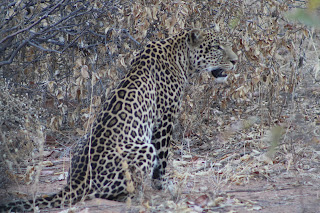According
to the dictionary.com app, trust can be a noun, adjective, verb (with or
without object), verbal phrase or an idiom. It can refer to “a person or thing
on which one relies” with “reliance on the integrity, strength, ability,
surety, etc., of that person or thing; confidence.” It is “to invest,” “to
commit or consign,” “to rely or depend,” to expect confidently,” “to believe,”
and “to hope.” It is something that isn’t often guaranteed, but rather earned
time and time again. It’s not always easy or comes naturally. But sometimes,
it’s the only thing one has to go on.
Though
close to Tigray region, many people in Gondar don’t speak Tigrigna. I’d never
been to the city before arriving on during a deluge one evening with my
parents. After 8 hours on paved and dirt roads with a driver I’d never met
before that morning. This was a time when trust was essential and very obvious.
I’d
asked an Ethiopian friend if he knew any drivers that would be willing to take my
parents and me to Gondar from Adwa in one day. He talked around and eventually
found a friend who would take us for 5,000 birr ($243.90). After breakfast in
Adwa my friend and the driver met us. My friend made sure we were good before
waving good-bye to us. We stopped briefly in Axum for the driver to pick up a
jar of honey for his friend and in Selekleka to pick up our large bags, before
heading out to unknown. On the far side of Shire we filled up the tank before
driving into new lands.
We
drove on and on and on. Pass refugee camps. Zigzagging down hills.
Creeping
back up. Occasionally the driver would stop for us to take a picture before we
continued on. We munched on the American stash of oatmeal chocolate chip
cookies, string cheese and Trader Joe’s crackers. Minutes and hours trickled
by. We went over bridges, through mud hut villages, patiently navigated through
construction zones, and lapsed into silence.
I
didn’t know where we were. I didn’t know how the road wound to get to Gondar.
My parents and I later talked about how the driver could really have taken us
anywhere. We could have been kidnapped to Sudan, or had our bags held ransom
until we agreed to pay him more. But trust, was getting in a car with someone
we barely knew, a friend of a friend. Trust was relying on him to know the
way. Throughout the next day when
bajaj (small three wheeled taxies) drivers took us on seemingly round about
ways, we had to rely on them again. Trust.
Another
part of being in a new city was not knowing where anything was located. Unlike
the other cities I’d taken my parents to, Gondar was the first one where I had
no idea where to go for anything. I didn’t know what hotel to stay at, how to
get to the castles, where the good places to eat were, or what other historical
things were there to see. On my own I was at a loss.
Trust
can also be giving up independence and asking for help that you hope is valid.
We asked the driver to take us to a hotel that was nice, but not too expensive.
He dropped us off at a fabulous place. We asked the hotel staff how to get to
the castles. They pointed us in the right direction. From the castles we asked
how to get to Fasilida Baths. The staff got us a bajaj, told us a reasonable
price for the ride, and reminded us that our ticket to the castles counted for
the bath too. We asked how to get to Gebre Brehane Selassie Church. The bajaj
driver took us and pointed out the ticket office. Dad asked the “world wide web”
(aka. Google) where to eat dinner. The electronic strangers’ responses lead us
to a fabulous meal at Four Sisters. Asking takes trust.
Gondar
wasn’t the only place where trust was needed. We trusted our friend to pick us
up at the airport in Dar-es-Salaam, Tanzania. Even when he was late, we trusted
that he still would come. We trusted the guides on safari to keep us all safe
even when we got out of the car. We trusted that ATM cards would work and all
transportation (buses, cars, airplanes) would be safe. Sometimes trust was
broken (reservations went missing, directions were incorrect), but overall our
trust wasn’t misplaced.
My
favorite definition of trust is a “confident expectation of something: hope.” When I was packing for Africa my
mom mentioned once that she hoped to come to Ethiopia and see me. She told me
that she trusted that God would provide the funds. Slowly but surely the
confident expectation of a trip with her and Dad traveling to me formed. They
trusted that Dad’s new church would give him time off to come. They trusted
that all bags could be under 50 pounds. They trusted that planes would connect
and be on time. They trusted me to speak Tigrigna, barter, and know where we
were going.
Before
the trip, I was battling trust about the future. What to do after Peace Corps
is becoming a very prominent and relevant question that I’ve started asking
myself often. The future is uncertain. Now? (Smile) Now I trust entirely, rely
on, believe in, commit to and hope with all my heart on God to show me the way.
Uncertainty is unnerving. It is to “doubt” -- being in a state of “unpredictability;
indeterminacy; indefiniteness” with “hesitancy.” Trust allows us to get passed that; to enjoy life beyond our
own understandings. I ask questions confidently. To explore the new without
fear--even if the new isn’t what we anticipated. Trust brings freedom.









